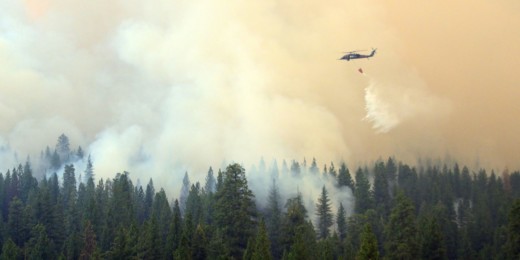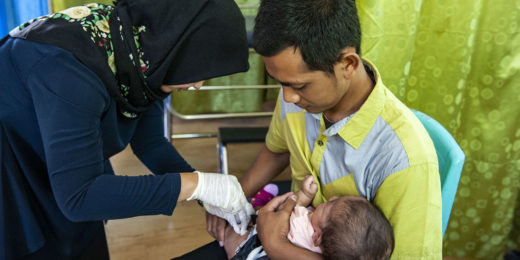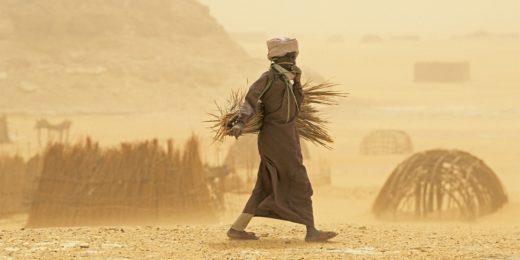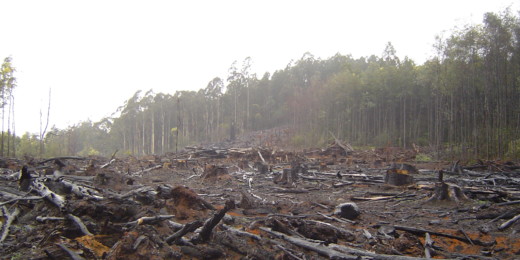Stanford Medicine sustainability experts work with researchers, doctors and environmental professionals to ensure greener operating rooms.
Category: Environment & Sustainability
Preparing schools for a greener future
Stanford Medicine experts, nonprofit leaders, policy makers and others "green" schools and prepare them for a climate resilient future.
A new, artistic perspective on plastic waste
Stanford Medicine scientist Desiree LaBeaud partnered with artist Jean Shin to create art of our discarded plastic.
Heartbeats and Hiccups: Education for a sustainable future
A Stanford Medicine medical student and anesthesiologist discuss how to prepare physicians in the face of climate change.
How some sunscreens damage coral
Researchers have discovered a mechanism for how corals are damaged by a component of sunscreen: oxybenzone.
Stanford residents aim to make clinics more sustainable
Stanford Medicine resident and collaborators spearhead an effort to decrease waste from dermatology clinics.
Wildfire smoke exposure raises risk for preterm birth
Exposure to wildfire smoke increases a pregnant woman's risk of giving birth three or more weeks early, a new Stanford study found.
Affordable health care can reduce incentive for deforestation, study finds
A Stanford-led study found that deforestation declined in a Indonesian community after a health clinic provided an incentive to avoid illegal logging.
The intersection of climate and health: Stanford group works for change
The Stanford Climate and Health group aims to find ways for the health care sector to reduce emissions and build resilience toward natural disasters.
Why air pollution is linked to severe cases of COVID-19
A Stanford researcher discusses how toxic pollutants can make people more susceptible to COVID-19 and why people of color are particularly vulnerable.
Dust pollution linked to infant mortality in Sub-Saharan Africa
Dust pollution in the air contributes to infant mortality in Sub-Saharan Africa, a Stanford-led study found. Watering the desert may lessen the harm.
Proximity to oil and gas wells linked to prematurity risk
Living near an oil and gas well in California's San Joaquin Valley during pregnancy is linked to increased risk of spontaneous preterm birth, finds Stanford study.
“Poor air quality affects everybody” — How to protect yourself and clean the air
A Stanford allergy specialist discusses how we can combat the negative health impacts of air pollution, in California and worldwide.
Designing buildings to improve health
Stanford researchers investigate how to design better buildings that can improve their occupants’ health and productivity.
Malaria in the Amazon increases following deforestation
A study led by Stanford and UC Santa Barbara researchers found a relationship between deforestation in Brazil's Amazon forest and a rise in malaria cases.
Pesticide exposure linked to brain activity differences in adolescents, study finds
Teenagers exposed to common agricultural pesticides before birth had distinctive reductions in certain types of brain activity, a new study has found.

















